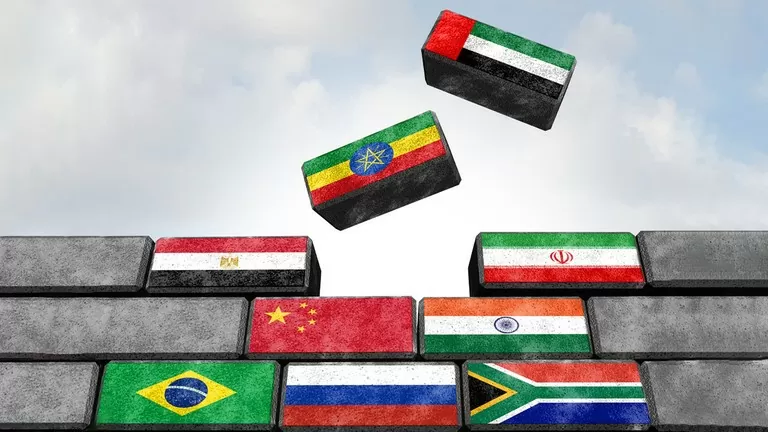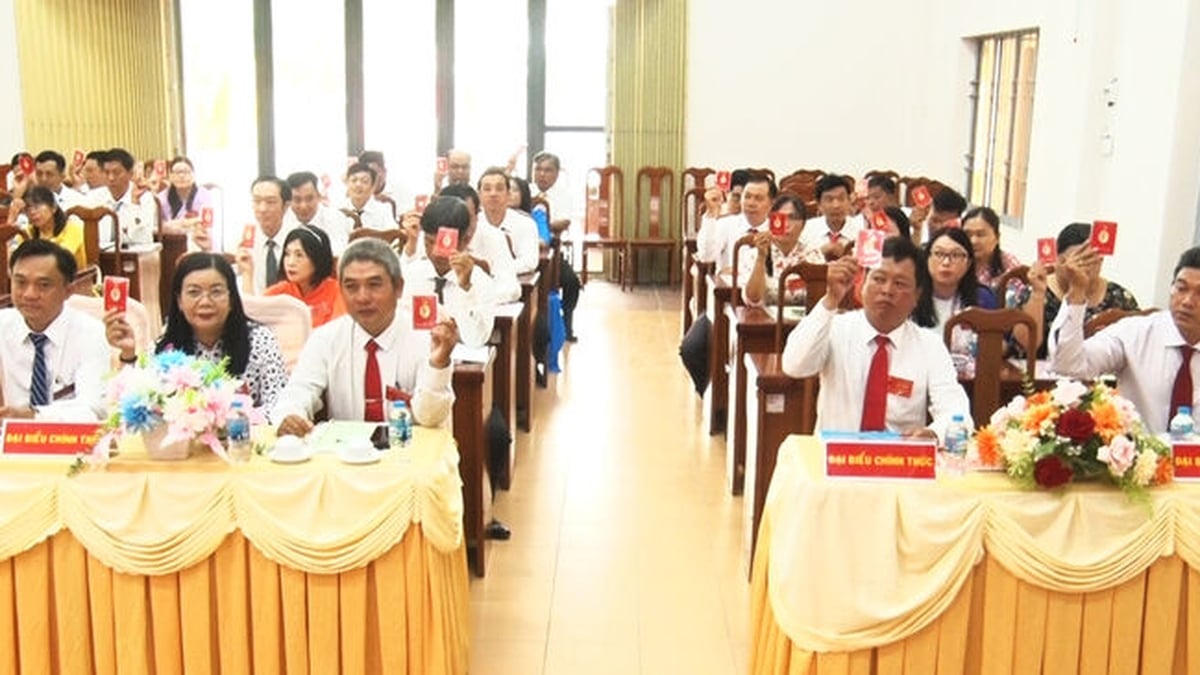China's Globaltimes published a commentary on a new development branch of BRICS, according to which, the new partnership of the world's leading emerging economies (BRICS) has broken the so-called "choosing sides" and promoted true multilateralism.
 |
| Chinese newspapers assert that BRICS is not anti-Western, does not 'choose sides', and only pursues autonomy in a multipolar world . (Source: Getty Images) |
On the first day of 2025, nine countries – Belarus, Bolivia, Indonesia, Kazakhstan, Thailand, Cuba, Uganda, Malaysia and Uzbekistan – officially became BRICS partners. This marks another important milestone in the development of BRICS, following the group’s historic expansion at the BRICS Summit in Kazan, Russia.
Hopes of BRICS partner countries
Thus, BRICS now not only includes 9 member countries: Brazil, Russia, India, China, South Africa, United Arab Emirates (UAE), Egypt, Iran, Ethiopia, but has also officially "admitted" 9 more partner countries: Belarus, Bolivia, Indonesia, Kazakhstan, Thailand, Cuba, Uganda, Malaysia and Uzbekistan.
With its strong development, BRICS now represents more than 35% of the world's GDP, 45% of the global population and 30% of the land area. The group now shows that it has a stronger presence not only in economics and politics , but also in efforts to respond to climate challenges and enhance global food and energy security. The integration process of countries in the Southern Hemisphere into BRICS shows an increasingly important role in promoting the development of a multipolar world.
The inclusion of nine new countries as BRICS partners highlights the growing momentum of the global movement to reshape an unjust and unfair international order, especially in the wake of the collective rise of the Global South, said Wang Youming, director of the Institute of Developing Countries at the China Institute of International Studies in Beijing.
For Cuba and Bolivia, for example, BRICS affiliation opens the way toward economic diversification, technological cooperation, and financial integration in a transforming international context.
Cuban President Miguel Díaz-Canel has openly stated that joining BRICS is an important opportunity to overcome the long-standing economic blockade imposed by the United States. The ability to trade in national currencies within BRICS will allow the Caribbean island to reduce its dependence on the US dollar and open up new trade flows.
Bolivian President Luis Arce stressed the importance of accessing the huge markets of countries like China and India. BRICS offers Bolivia opportunities for technological development and access to multilateral financial cooperation.
Thus, the Group of Leading Developing Economies offers great hope to countries in the Global South in the struggle for a more just and democratic international order.
Commenting on the expansion of the “BRICS family”, especially after the BRICS Summit in Kazan, some Western media outlets have raised questions about the balance of power.
The US media said, "The BRICS summit highlights geopolitical aspirations and competition with the West." Some Western media and politicians believe that the BRICS mechanism is aimed at confronting the West.
Avoid zero-sum games
However, the Chinese newspaper took the view that - BRICS is a non-Western organization, but not an anti-Western organization. From its inception, BRICS has clearly stated its role and mission: not to start over, not to engage in confrontation between factions, and not to seek to replace anyone.
The BRICS model of multilateral cooperation avoids zero-sum games between major powers and offers a more inclusive model for international relations. It is this inclusiveness that has prompted many countries from the Global South to quickly apply to join the BRICS family.
Globaltimes asserts that the driving force behind the development of BRICS is the growing demand from developing countries for a more just and equitable international order.
In recent decades, the world has increasingly been weighed down by the hegemonic actions of Western powers. In stark contrast, the BRICS countries have not only made significant progress in their own development, but have also thrived through cooperation, while supporting the shift to a multipolar global system.
Now, with geopolitical risks continuing to rise, the BRICS partners offer the countries of the Global South a more comprehensive, flexible and resilient alternative.
BRICS not only provides opportunities for economic cooperation but also creates a platform for developing countries to have a voice and participate in global governance reform. Through the BRICS platform, the Global South can free itself from the traditional geopolitical pressure to “choose sides” and pursue greater autonomy in a multipolar world.
Some Western media outlets have blamed the risk of global division on the expansion of BRICS, arguing that countries have to choose between joining BRICS and cooperating with the West?
They have even referred to BRICS as an anti-Western weapon. However, more and more countries are realizing that the BRICS mechanism is not what the Western media portrays.
The Chinese newspaper pointed out that BRICS did not follow the Western path of forming exclusive blocs; instead, BRICS created a new path of dialogue, not confrontation; partnership, not association.
Amidst the challenges in the current international system, the BRICS mechanism provides a promising platform for cooperation. By promoting inclusive development, supporting multilateralism and reforming the global governance system, the BRICS countries and their partners have made significant contributions to shaping a more equitable international order.
Globaltimes concluded that although the BRICS cooperation process faces many complex limitations, its prospects certainly bring hope for building a multipolar world.
Source: https://baoquocte.vn/bao-trung-quoc-brics-khong-chong-phuong-tay-khong-chon-phe-chi-theo-duoi-quyen-tu-chu-299531.html

































































































Comment (0)